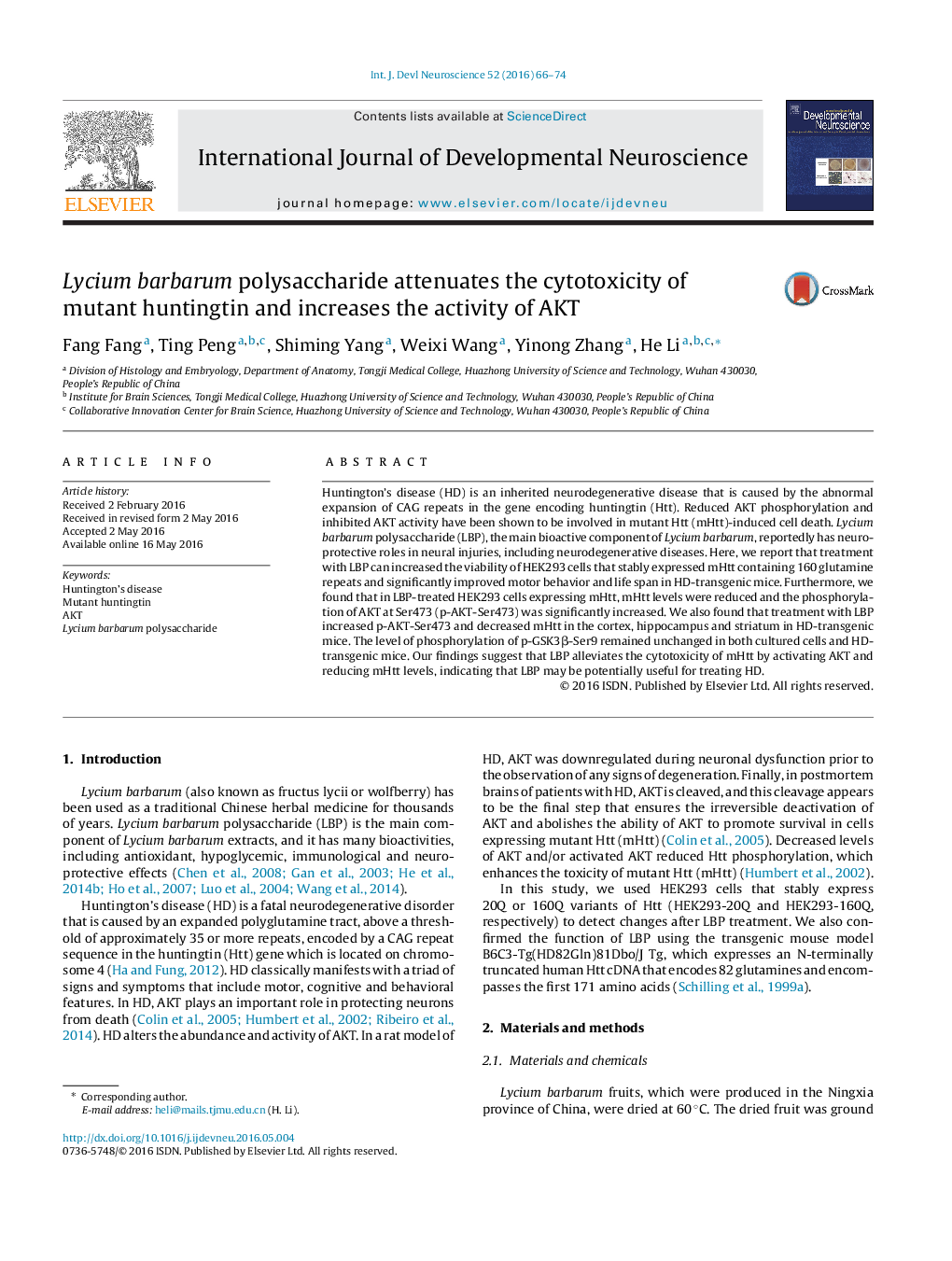| Article ID | Journal | Published Year | Pages | File Type |
|---|---|---|---|---|
| 2785583 | International Journal of Developmental Neuroscience | 2016 | 9 Pages |
•LBP can increase AKT activity and reduce mHtt in HD cells and mice.•LBP can alleviate the symptoms of HD.•LBP may protect against other neurodegenerative diseases that are caused by misfolded proteins.
Huntington’s disease (HD) is an inherited neurodegenerative disease that is caused by the abnormal expansion of CAG repeats in the gene encoding huntingtin (Htt). Reduced AKT phosphorylation and inhibited AKT activity have been shown to be involved in mutant Htt (mHtt)-induced cell death. Lycium barbarum polysaccharide (LBP), the main bioactive component of Lycium barbarum, reportedly has neuroprotective roles in neural injuries, including neurodegenerative diseases. Here, we report that treatment with LBP can increased the viability of HEK293 cells that stably expressed mHtt containing 160 glutamine repeats and significantly improved motor behavior and life span in HD-transgenic mice. Furthermore, we found that in LBP-treated HEK293 cells expressing mHtt, mHtt levels were reduced and the phosphorylation of AKT at Ser473 (p-AKT-Ser473) was significantly increased. We also found that treatment with LBP increased p-AKT-Ser473 and decreased mHtt in the cortex, hippocampus and striatum in HD-transgenic mice. The level of phosphorylation of p-GSK3β-Ser9 remained unchanged in both cultured cells and HD-transgenic mice. Our findings suggest that LBP alleviates the cytotoxicity of mHtt by activating AKT and reducing mHtt levels, indicating that LBP may be potentially useful for treating HD.
